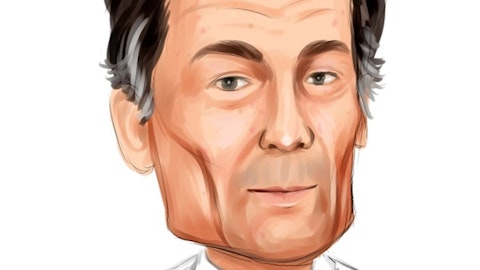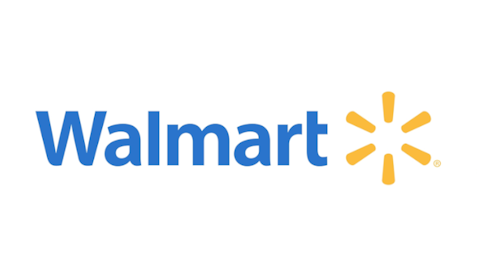
One of the most successful money managers of our day is George Soros, the founder of Soros Fund Management, a hedge fund with an estimated $25 billion in assets under management. Soros is known as “the Man Who Broke the Bank of England” for his legendary short sale of the British pound on September 16th, 1992, a date now infamously known as Black Wednesday.
Aside from his reputation as one of the premier currency speculators on the planet, Soros has also been a very successful equity investor, as his fund has consistently generated returns of more than 20% a year since its inception in 1969. As of his most recent 13F filing with the SEC, Soros’ top stock pick is Wal-Mart Stores, Inc. (NYSE:WMT). Soros’ position in the global retailer is worth an estimated $363.1 million, and comprises 4.9% of his portfolio’s total holdings.
Since the start of 2012, Wal-Mart has been a solid investment for the hedge fund manager, generating a return of 25.7%, lower than the discount stores industry as a whole (41.9%), but better than competitors like Costco Wholesale Corporation (NASDAQ:COST) at 23.3%, and Safeway Inc. (NYSE:SWY) at -21.6%.
A renewed emphasis on the discount pricing programs that helped the company reach its current status as “the world’s largest retailer” has done wonders for Wal-Mart’s fiscal health. In its most recent earnings release, the company reported a second quarter EPS of $1.19, a 9.2% growth from the same point last year. More importantly, Wal-Mart expects to finish 2012 with earnings between $4.83 and $4.93 a share, up from its initial guidance of $4.72-$4.92.
If these earnings targets hold, it would mark an 8.2% growth from Wal-Mart’s 2011 totals, which is decidedly middle-of-the-road compared to what the likes of Costco (17.0%), Safeway (13.7%), Target Corporation (NYSE:TGT) (1.0%), and Dollar General Corp. (NYSE:DG) (21.4%) are expecting. When we use the PEG ratio to determine how investors are valuing this earnings growth, we find equally middling results, as Wal-Mart currently trades at a PEG of 1.8, on the borderline of being considered “overvalued.” This metric is below Safeway (2.2), but above the retailer’s aforementioned competitors.
Aside from the numbers, a few qualitative factors that give investors reason to be bullish on Wal-Mart are: (1) the company’s expansion of its over-the-counter pharmaceutical offerings, which accounted for 11% of 2011 sales; (2) its stranglehold on the back-to-school shopping market; (3) its successful navigation away from the drama of its Mexican bribery scandal; (4) its “back to the basics” store layout restructuring program; (5) and above-average growth in its Sam’s Club branch, which has seen operating income expansion (10.1%) at more than twice the rate of its other business segments.
As mentioned above, George Soros has an enormous position in the global retailer, and other prominent money managers such as Warren Buffett, Jim Simons, Sandy Nairn, and Ken Griffin are also long Wal-Mart. For a complete look at how the hedge fund industry is valuing this stock, continue reading here.





